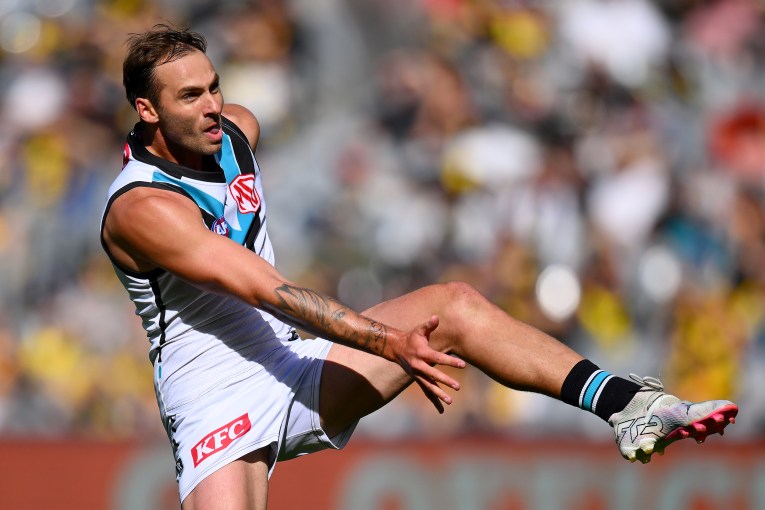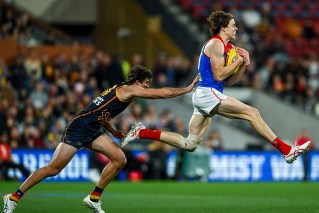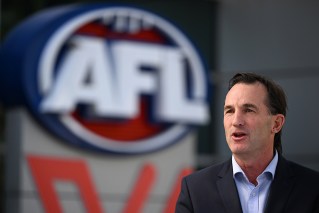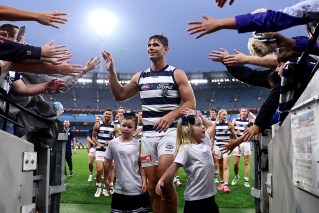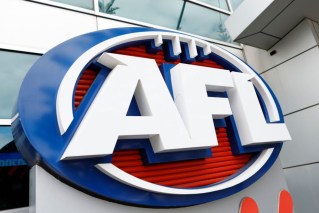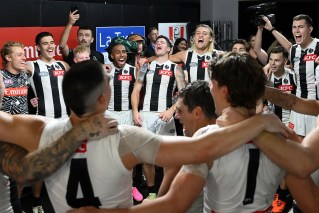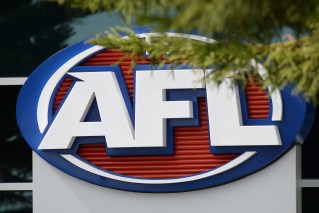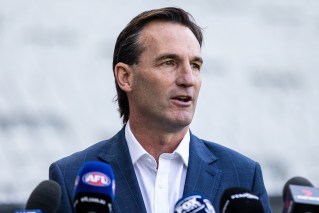Memo AFL: Follow NRL’s lead on player trades
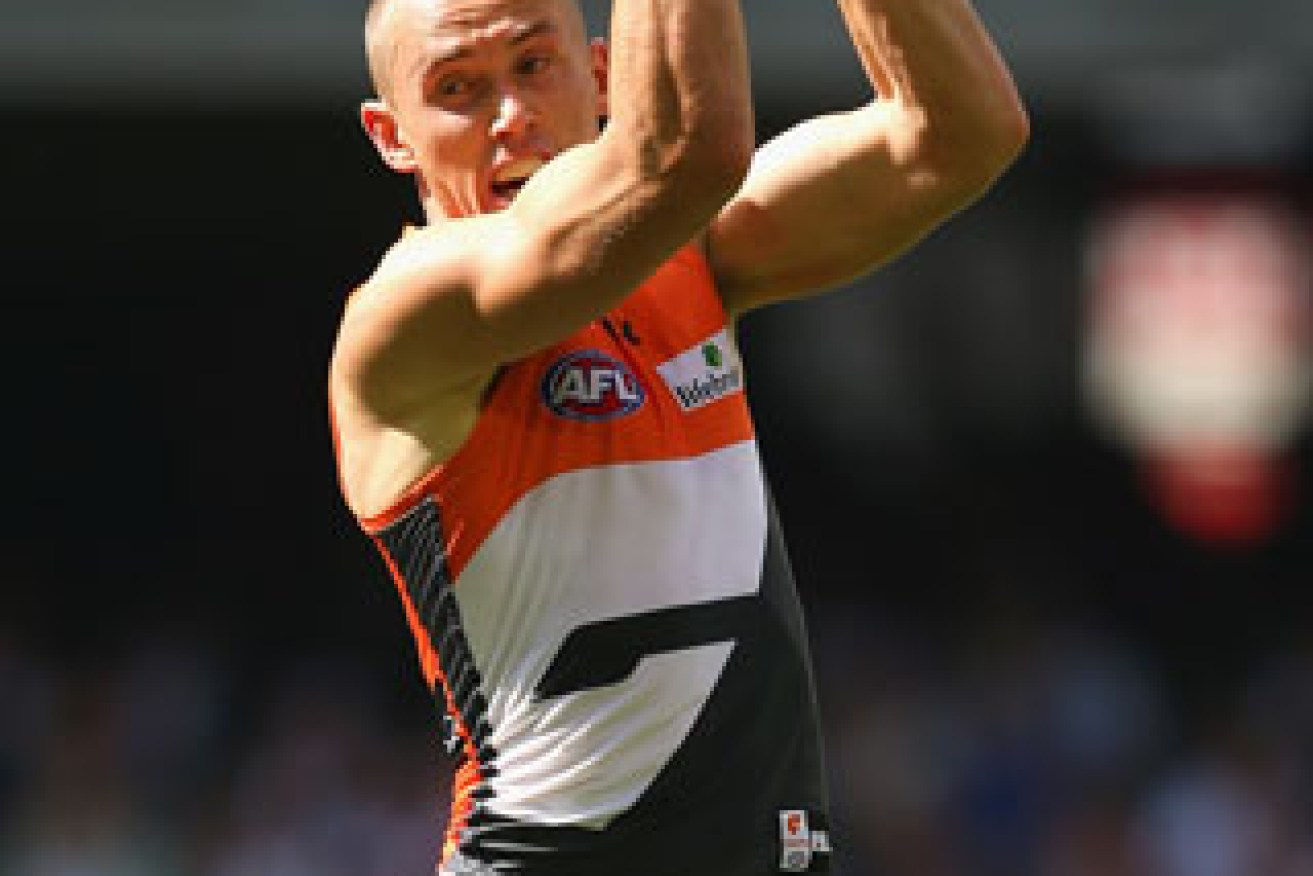
The AFL's culture meant Tom Scully had to be evasive before it was announced he was leaving Melbourne. Photo: Getty
Before 2012 the AFL had the salary cap and draft, a dual system that operated for the greater good of the competition in the pursuit of equality. It worked, providing a competitive balance on field, the only place of interest to fans. Success was attainable in the minds of all.
Now there is free agency, the balance is under threat and the game is vulnerable, as is the one thing administrators believed differentiated it from other sports: a unique tribalism born out of loyalty.
• Why the trade period is tearing at footy’s fabric
I spent 15 years in AFL club administration. At trade time there was always an unwritten rule: if a player was under contract he was untouchable. It was a gentlemen’s agreement between administrators – unless his club put him up for trade.

The AFL’s culture meant Tom Scully had to be evasive before it was announced he was leaving Melbourne. Photo: Getty
This is no longer. Contracted players are being incentivised and coerced to break their agreements.
Plenty of reasons are offered for wanting to switch clubs: personal, financial, lifestyle, football, welfare, family. Announcements are carefully staged by management groups who tend to treat the public as imbeciles.
The news is delivered to furious club executives and a bewildered public, who are expected to believe that money is not the key lever in negotiations.
AFL supporters are not stupid and they are tired of Pinocchios popping up everywhere in their game.
The spin is damaging the game’s brand.
I fear for the future of the less profitable clubs in this new paradigm.
The AFL world is an emotion-charged business.
The wealthy like Collingwood have been victim to this new way of playing in the past week. The silence from their president is deafening. Frightening, in fact.
A snip at the python’s tail can lead to strangulation. They are but one of the big players with deep pockets capable of causing untold damage in what is now essentially a free trade market.
Do you really think that the wealthy will just sit back and not want to have their day? Expect their vengeance to be fierce.
The most vulnerable are the current cellar dwellers attempting to draft their way to future success. They have lost a serious protection mechanism.
A contract is worthless without honour among administrators. This process has changed the equilibrium in the jungle forever, with the undernourished lying like weak, vulnerable to attack.
Perhaps, though, we may get something positive out of all this.
The NRL operates successfully with free agency. In that code players, even coaches, openly move from club to club during the season because a less hurried approach to such life-changing decisions for players is considered more acceptable than for it to be done in a two-week rush, as it is in the AFL.

Israel Folau played an entire season with the Storm after announcing that he would be switching camps. Photo: Getty
The model works. It is generally transparent and socially acceptable to the clubs and the supporters.
When the Melbourne Storm lost rising star Israel Folau in 2009 to the Broncos, it was a clean, simple process. We made it that way. He had a two-week window early in the season to decide if he was coming or going (terms the club stipulated to avoid late-season distractions).
He chose Brisbane and we announced it. Israel committed to give his all for the remainder of the season. No retribution was felt internally or from fans. It was mature and honest. This process took place time and time again and it never was a problem for the club, its sponsors or the fans.
The AFL industry must mature and put an end to the charade of recent seasons, with the likes of Gary Ablett, Tom Scully, Brendon Goddard, James Frawley, Lance Franklin and goodness knows how many others being evasive about their move because of some misconception that the fans won’t cope or because of threat from some narrow-minded coach’s threats.
The supporters are rightly sick of those who lack the courage of their convictions.
Earlier this year a senior club official said the AFL was unique because player movement was less likely and that tribalism was central to the game. I suggest the clubs’ new dog-eat-dog culture has blown that ideology up!
Last week in the NRL South Sydney won their first premiership in 43 years. Both clubs had numerous players already committed to playing elsewhere in 2015. Nevertheless, we witnessed tribalism at its best.
The AFL should take note and follow the NRL’s example or they just may be at risk of losing the sense of identity that the game’s supporters love.
